“Speak Softly and Carry a Big Stick”: Why State Chiefs Should Do Both
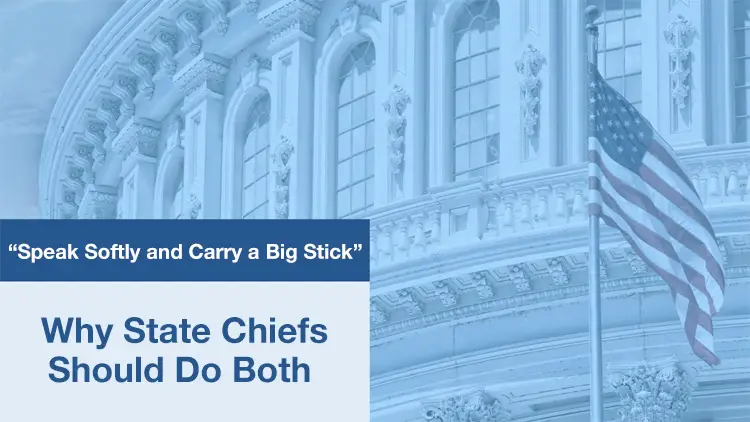
In the ongoing debate about federal and state roles in K–12 public education, states got a leg up with the passage of the Every Student Succeeds Act (ESSA). It renounces the strong regulatory role that the federal government had come to play, in favor of a return to state control. Now that the federal government […]
Will the New Administration Love School Choice to Death?
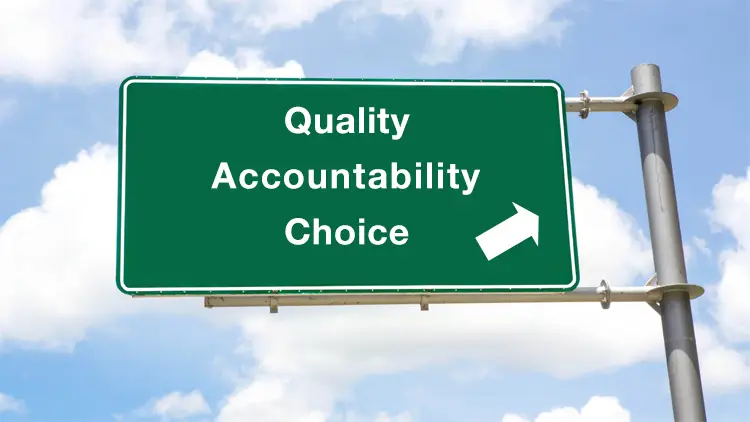
My education policy friends were frustrated that education didn’t get more air time during the presidential campaign season, but I was relieved. I cringed every time I heard candidate Donald Trump and his surrogates talk about education. All I could think of was the analysis I did eight years ago of George W. Bush’s school […]
Incomplete Reform in Baltimore: An Interview with CRPE research director Betheny Gross

Five years ago, Baltimore City Public Schools seemed on the brink of a breakthrough. By almost all accounts, the district-led portfolio system—traditional and charter school options, all authorized and managed by City Schools’ central office—was working. But today, progress appears to have stalled. CRPE research director Betheny Gross and analyst Ashley Jochim researched Baltimore to […]
The “Noble Lie” of Evidence-Based Turnaround Strategies
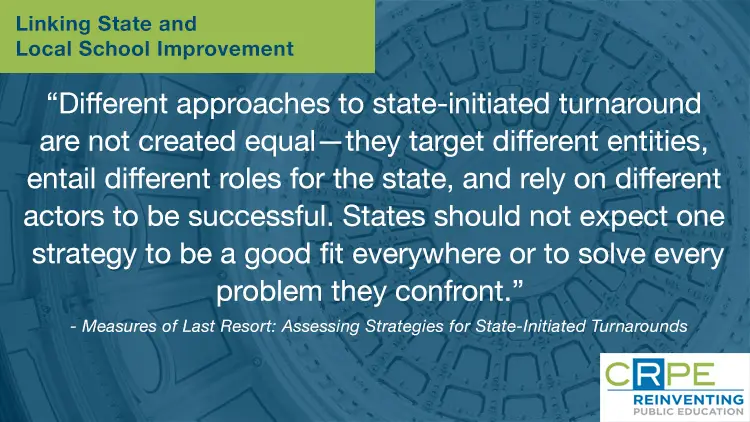
The Every Student Succeeds Act abandons the prescriptive approach to school improvement embraced by both the No Child Left Behind Act and the Obama Administration’s flexibility waivers. Instead, states are empowered to craft their own “evidence-based” strategies to turn around struggling schools and districts. But what does an evidence-based turnaround strategy look like? CRPE recently […]
Linking State and Local School Improvement
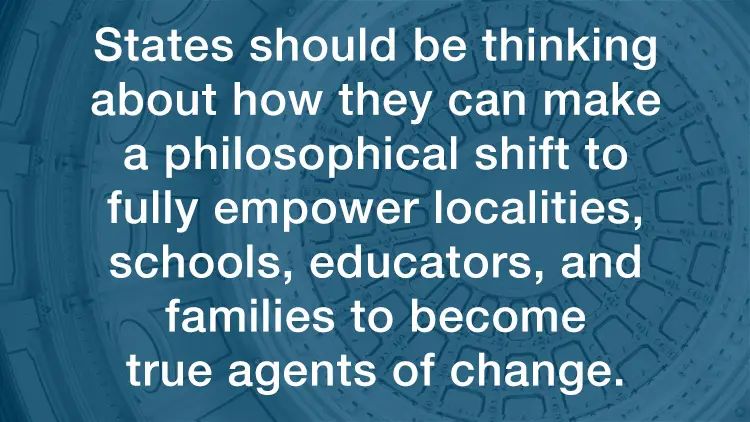
The new federal Every Student Succeeds Act (ESSA) gives heavy deference to “local control.” School districts, charter schools, and communities are meant to be in the driver’s seat. And they are. States don’t improve student outcomes—schools and families do. State agencies have limited authority to intervene in low-performing schools, for example, and have limited staff, […]
Can Civil Rights Institutions Keep Up as Public Education Evolves?
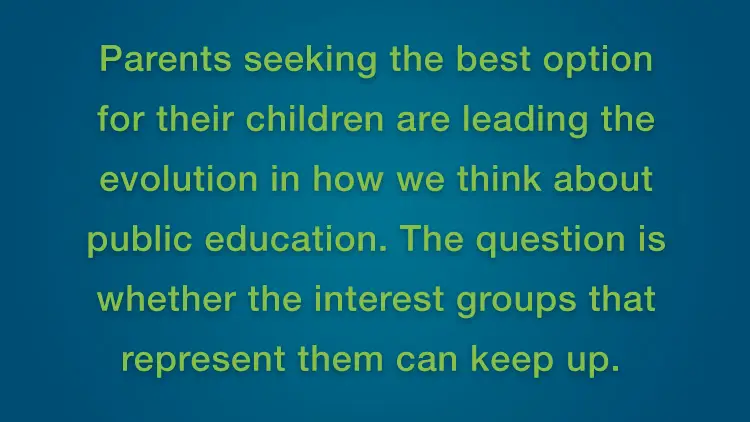
The NAACP’s resolution to oppose charter schools left thousands of black families whose children attend charter schools stunned. How could such a revered institution fail to recognize their beliefs and interests? Organizations like NAACP have earned our trust and respect. Decades of fighting on behalf of the powerless have given them good standing among politicians, […]
Coming to a City Near You: Common School Performance Measures
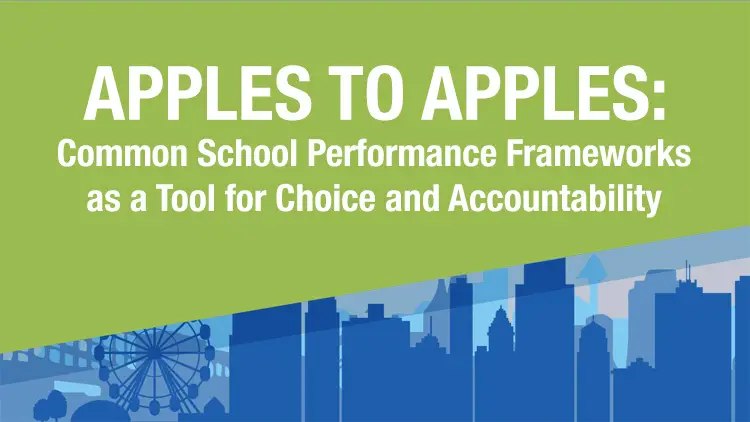
One of the great promises of public school choice was the opportunity for diverse schools to develop unique performance measures, but the price has proven to be high. When schools set their own bar for success, families faced with a dizzying array of options can struggle to meaningfully compare the quality of public schools in […]
An Outdated District Lens: Why State of Our Cities’ Focus Is Too Narrow

The Bush Institute recently released State of Our Cities, a compelling new data tool for viewing public school conditions and outcomes for over 100 cities. The project’s scope is impressive, but in some cases it misses the mark by equating a single school district with an entire city’s public education system. Our 2015 report, Measuring […]
Wells Fargo and the Atlanta Schools Testing Scandal

To people in education, the Wells Fargo scandal sounds eerily familiar. Top executives tried to increase performance by setting ambitious goals for opening new accounts, and attaching big rewards and penalties. Managers believed internal reports showing that the performance incentives worked. The incentives did work to some extent, in that the number of bona fide […]
Why Schools Shouldn’t Go It Alone on Personalized Learning
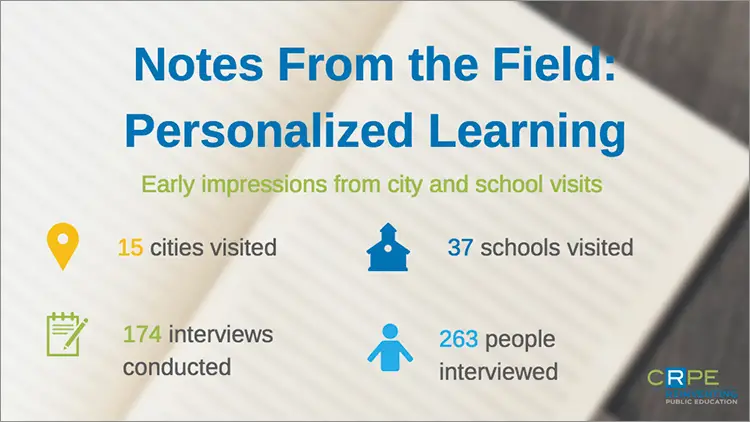
This is the fourth in our series of “Notes From the Field” on personalized learning. Principals and teachers trying to personalize their students’ learning are charged with radically reimagining the classroom. It’s a tall order that requires educators to take risks, move outside their comfort zones, and essentially overhaul much of their jobs. What we’re seeing […]


